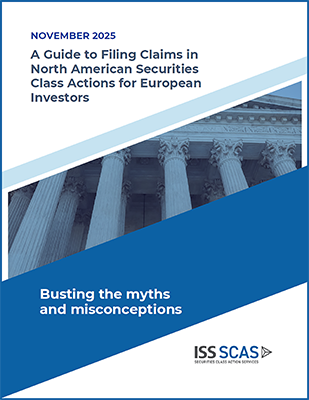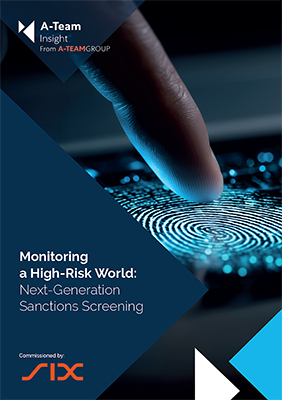RegTech Insight White Paper

Editor’s pick
How Advisory Firms are Integrating AI in Compliance
Two years after ChatGPT brought Generative AI (GenAI) into the mainstream, financial institutions are still exploring how best to harness this technology within their compliance functions. While the promise of increased efficiency and enhanced accuracy is clear, many compliance teams proceed cautiously, mindful of risks related to data security, regulatory compliance, and the need for...
DownloadReclaiming Value in a Shifting Legal Landscape: The 2025 Top 100 Settlements Analysis
While 2025 saw its challenges, the year ended on a high for securities litigation in the US marketplace, raising the prospect of an expanded rebound in 2026. The latter part of the year saw four settlements that exceeded $200million in value in addition to a single, significant settlement reaching $740million, providing a late-year boost to...
Electronic Communications Monitoring: Leveraging AI for More Effective Surveillance
The proliferation of electronic communications channels available to financial professionals and their clients has created a headache for compliance teams charged with mitigating against market abuse, insider trading and other illegal activities. In an era of heighted regulatory scrutiny, compliance teams are finding it challenging to put in place the appropriate systems and processes, particularly...
Securities Litigation in EMEA Comes of Age: Your Guide to Complex EMEA Securities Litigation
Navigating the complex and increasingly active securities litigation landscape across Europe, the Middle East, and Africa, remains a thorny challenge for investment management operations teams. Unlike North America, where virtually all investors passively await settlements, EMEA is characterised by active litigation, frequently confidential settlements, and the fact that many jurisdictions in EMEA are still grappling...
Dispelling Myths About North American Securities Class Actions
Securities class actions serve an important role in protecting and enhancing shareholder value. However, recovering settlement proceeds can sometimes be overlooked due to the perceived complexity, limited resources, or lack of in-house expertise. In particular, North America has one of the most extensive and developed class action frameworks in the world. But despite the system...
Monitoring a High-Risk World: Next-Generation Sanctions Screening
Sanctions remain a critical tool in international relations, influencing global finance, politics and security. In the past five years, global economic and financial sanctions have intensified amid rising geopolitical uncertainty, creating a complex landscape for financial institutions worldwide, the report states. The risk that institutions can inadvertently engage with sanctioned securities has never been higher,...
Unlock the Future of APAC Capital Markets: Your Definitive Guide to Technology, Data & Innovation
The Asia Pacific (APAC) capital markets are navigating a period of profound transformation, driven by relentless technological advancement and a complex regulatory environment. To stay competitive and drive sustainable growth, financial institutions need a strategic roadmap built on authoritative insights. A-Team Group presents “The State of Capital Markets Technology in Asia Pacific,” a comprehensive new...
Unleashing the Power of AI for Financial Institutions with Snowflake and Amazon Web Services
Financial institutions are among the largest users of AI, deploying it for a range of use cases that, while already wide, will broaden in the future. A report by the International Monetary Fund has forecast that institutional spending on AI will surge 29% to US$97 billion by 2027. The technology has become crucial to automation...
Getting Control of Access to Key Market Services
Use of single dealer portals that allow banks to trade assets on behalf of their clients is growing rapidly, particularly among firms in the fixed income and foreign exchange markets in particular. But while trading portals offer great benefits in terms of broader market reach and enhanced client functionality, they bring risks too. Firms are...
How to Build an Efficient Enterprise ESG Data Strategy in Banking with Cloud and Machine Learning
ESG investing is now integral to financial institutions’ activities, motivated by client demands for sustainable investment options, regulatory obligations and a growing cultural shift towards ensuring that capital is allocated in order to do better for the planet and the people on it. Data is the magic dust that is enabling the translation of that...
Best Practice Approaches to Cross-Product Market Surveillance
As perpetrators of financial crime become more sophisticated, regulators worldwide are focusing more of their efforts on cross-product and cross-market manipulation, as evidenced by a growing number of high-profile prosecutions. Led by the UK’s FSA and the EU’s ESMA, regulators in key global markets are targeting sophisticated operators, whose cross-product activities typically involve are able...












